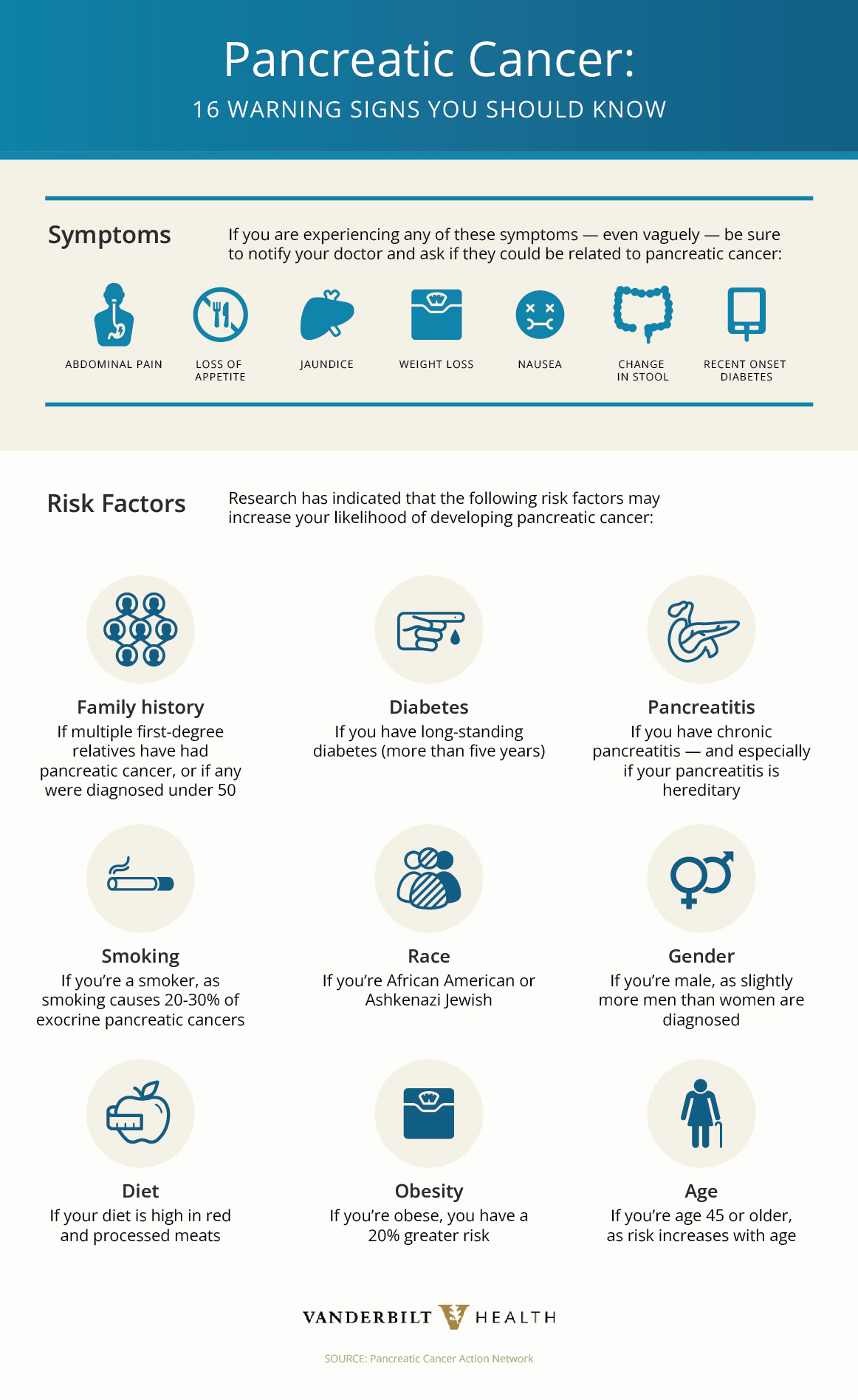Warning signs you should be aware of — and the risk factors that mean you should be on the lookout for this aggressive cancer.
Pancreatic cancer is sometimes called a “silent” disease. Symptoms can be hard to pinpoint and are often easily dismissed. That’s why it’s important to understand which pancreatic cancer symptoms might present themselves—even vaguely—and what the possible risk factors are for developing the disease. That way, you’ll know if you need to be on the lookout, and when it’s time to talk to your provider.
Pancreatic cancer risk factors
Some risk factors for pancreatic cancer are lifestyle choices and are under our control, like smoking and diet. According to the American Institute of Cancer Research, 25% of pancreatic cancers can be attributed to smoking, and greater body fatness, as measured by body mass index, can be a cause of pancreatic cancer. Therefore, eating a nutritious diet, maintaining a healthy weight, avoiding smoking and getting plenty of exercise can all lessen your risk.
But some risk factors, like your genetics and family history, cannot be altered. If you have two or more first-degree relatives who have had pancreatic cancer, a first-degree relative who developed pancreatic cancer before the age of 50, or an inherited genetic syndrome associated with pancreatic cancer, you may have an increased risk of developing pancreatic cancer, according to the Pancreatic Cancer Action Network.
Race and ethnicity play a role, too. African-Americans have a higher incidence of pancreatic cancer compared to individuals of Asian, Hispanic or Caucasian descent. There is also a higher incidence of pancreatic cancer among Ashkenazi Jews.
Pancreatic cancer symptoms
If you have one or more of these in your history, it’s important to be vigilant and listen to your body. According to the Pancreatic Cancer Action Network, these are the pancreatic cancer symptoms and risk factors to be aware of.


Personalized Care for Cancer
The experts at Vanderbilt-Ingram Cancer Center work to provide a precise diagnosis and effective treatment options for pancreatic cancer. The team combines advanced research, technology and techniques with compassionate care to create a personalized treatment plan that is right for each patient.




